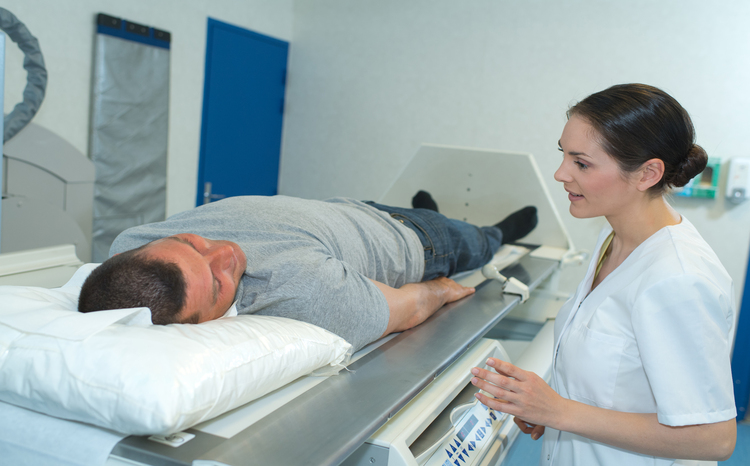AI trial to enhance the precision of radiotherapy for prostate cancer
- 8 January 2025

- Researchers at The Clatterbridge Cancer Centre NHS Foundation Trust in Wirral are using AI to enhance the precision of radiotherapy for prostate cancer
- The PIVOTALboost study, which ran from 2018, recently closed after surveying data from 2,232 patients across 49 healthcare centres in the UK
- Researchers hope the study could improve clinicians’ confidence in targeting specific areas of the prostate, making treatment more effective
Researchers at The Clatterbridge Cancer Centre NHS Foundation Trust in Wirral are using AI to enhance the precision of radiotherapy for prostate cancer.
The PIVOTALboost study, which ran from 2018, recently closed after surveying data from 2,232 patients across 49 healthcare centres in the UK.
It builds on research from the Netherlands, conducted between 2005 and 2008, in which the FLAME clinical trial demonstrated that adding a ‘boost’ dose of radiotherapy to the tumour nodule within the prostate improved patient outcomes, including reduced relapse rates and fewer secondary cancers, without significantly increasing side effects.
Dr Alex Batty, clinical fellow at Clatterbridge, said: “Our research focuses on using AI to standardise and refine how we deliver this boost dose of radiotherapy.
“The outcome could improve clinicians’ confidence in targeting specific areas of the prostate and ultimately make treatment more effective.”
FLAME researchers are developing a computer algorithm trained on pathology specimens, creating a standardised method for identifying target areas using MRI scans.
The PIVOTALboost trial evaluated whether the boost dose is beneficial in a shorter, four-week radiotherapy schedule compared to the eight-week timescale used in FLAME.
Participants were randomised to either standard radiotherapy or radiotherapy with a boost.
Batty said: “If the outcomes align with the FLAME trial, we could see a significant shift in prostate cancer treatment standards.
“AI tools like this could streamline workflows, save time, and improve patient outcomes.”
Results of the study are being analysed and researchers hope they could pave the way for more accurate and effective treatment for high-risk prostate cancer.
Researchers at The Clatterbridge Cancer Centre (CCC) plan to apply an algorithm to MRI scans from trial participants, starting with those treated at CCC and London’s Royal Marsden Hospital, a partner in their Biomedical Research Centre (BRC) collaboration.
Professor Isabel Syndikus, consultant oncologist at CCC and chief investigator in the project, said: “With 49 trial centres using varied MRI scanners, importing and analysing the imaging data in this research is a major challenge.
“But if we are successful, doing this will establish a robust and validated AI programme to assist clinicians in delivering prostate boost protocols with greater accuracy.”
Preliminary findings suggest that AI-driven contouring could reduce inconsistencies observed in the FLAME trial, where there was a 20% disagreement between clinicians’ interpretations and the algorithm’s suggestions.
“Standardising this process could ensure that patients across the globe receive high-quality, evidence-based care,” said Syndikus.
The analysis of the PIVOTALboost trial is a collaboration between CCC, which acts as sponsor, and the clinical trials unit at The Royal Marsden, through the BRC.
CCC is an associate partner in the National Institute of Health Research-funded BRC, awarded to The Royal Marsden and the Institute of Cancer Research.
Dr Gillian Heap, director of research and innovation operations at CCC, said: “This collaboration bridges innovative technology with clinical practice and shows how important partnerships are in cancer research.
“If successful, this study will bring us closer to ensuring that every prostate cancer patient receives the best possible treatment for their disease.”




